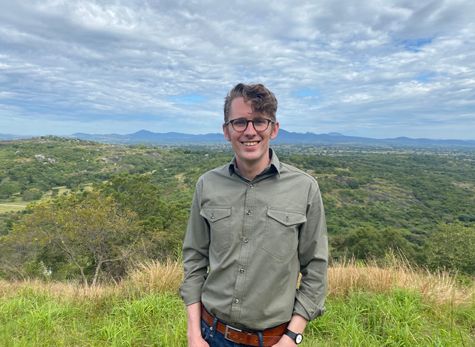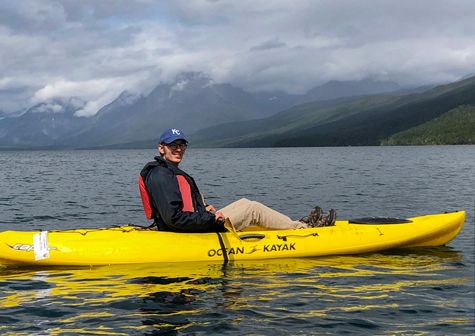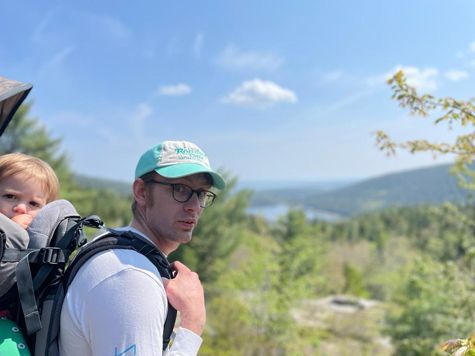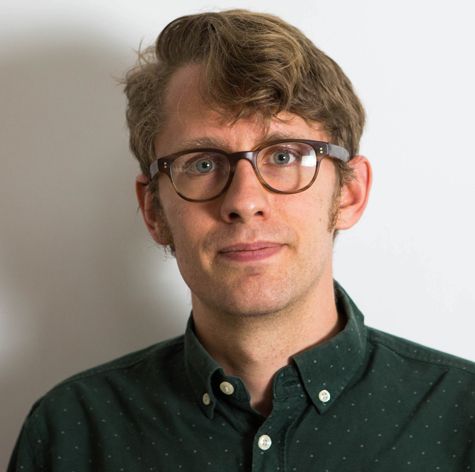Early Career Scientist Spotlight
Dr. Weston Anderson (he/him)
Agroclimatologist
Hydrological Sciences Laboratory (617)
What science questions do you investigate?
As an agroclimatologist, I study how climate variability and climate change affect food security. I use reanalysis products, remote sensing-based observations, and land surface models. My research focuses primarily on improving our understanding of how climate extremes affect crop yields and using that information to improve forecasts for food security early warning systems. I’ve recently been investigating how global-scale modes of climate variability pose a correlated risk to food production and have been working on using this information to build novel, preseason crop yield forecasting systems.

Credit: Weston Anderson
What aspect of your work excites you the most?
What initially hooked me on scientific research was an ability to be creative. In scientific research, you are asked to explore uncharted territory without a road map. You have a set of tools (observations, models, mathematical methods, etc.) and you have specific question you are trying to answer. But, no one can tell you how to do it. You can formulate your own approach and creatively draw from other fields, other studies, and other researchers. I love that. It’s without a doubt what I enjoy most about my job. I love when I get to sit down and sketch out a plan for how to use methods from one field and apply them to another problem, or when I get to outline how we can triangulate an answer to a thorny question using the only tools we have: messy data and imperfect models. For me, that combination of creativity and logic to solve real-world problems is both exciting and rewarding.
What skills are most useful to you in your work, and where did you develop those skills?
The skills that are often associated with being a scientist are mathematical skills, programming, analytical thinking, etc. And these are all important. But I’ve found that in my work, which is often interdisciplinary, it’s equally important to be able to listen to others, communicate technical concepts in plain language, foster positive team environments, and understand where your work fits into a larger whole. Fostering these skills means spending more time up front talking to other scientists and practitioners. It means sitting down and devoting the time to thinking about a problem differently, or spending time talking with someone from another field to understand the value in the work they do and how they approach their work, even if it’s not how you would do it. More than anything, it requires keeping an open mind to the value of different approaches or even to different ways of knowing.

Credit: Weston Anderson
If you were to expand your current research focus, what new topics would you explore?
The current research and operational landscape in climate and food security is really lacking crop yield forecasts that are issued prior to the start of the growing season. There are dozens of climate forecasting centers producing seasonal climate forecasts. We’ve become extremely good at forecasting the El Niño Southern Oscillation (including an El Niño this year!). But we’ve totally fallen flat as a community in translating those forecasts into quantitative crop yield forecasts. There is only a single model anywhere in the world that produces global yield forecasts by using seasonal climate forecasts. Given that these climate forecasts have proven useful in many important agricultural areas, that’s a huge oversight from the agroclimate community.
How did you end up working at NASA Goddard?
Working with scientists from NASA Goddard in the context of drought monitoring in East Africa was what got me into scientific research in the first place. As an undergraduate, I worked with Ben Zaitchik at Johns Hopkins on a project that combined remote sensing-based estimates of soil moisture with land surface models in order to produce a drought monitor in an area with sparse ground-based observations. We used the Noah land surface model v3.2 together with microwave- and thermal infrared-based soil moisture estimates to show how these three systems really complemented one another in terms of their strengths and weaknesses. From that point onward, I was sold on the potential to use NASA tools to improve food security. My subsequent work experience and graduate school study took me further into the fields of food security and Earth Science with my thesis focusing on the El Niño Southern Oscillation and global crop yields. My connection to NASA Goddard was through the work that NASA does with the United States Agency for International Development (USAID) Famine Early Warning System Network (FEWS NET), which was a natural fit for my research. Of course, actually getting a job working with NASA and FEWS NET was largely luck. I happened to graduate at about the time that FEWS NET was expanding its focus to be global in scope and at a time when USAID was hoping to develop novel long-lead crop yield forecasting systems. My research experience positioned me well to work on these topics.
What do you like to do in your free time?
I enjoy hiking, cooking and making art in my free time. I just made a lemon-basil ice cream with a peach swirl this last weekend. I wanted to make something `summery’ as a dessert and have a stoop full of potted basil plants, so it was a perfect opportunity to try something new. I’m planning to make a pizza with ricotta, figs, and greens this evening. I know these are both cartoonishly yuppie foods to make, but if you’ve never tried figs on pizza, you’re missing out.

Credit: Weston Anderson
What advice would you give your younger self?
Don’t worry about trying to chart out a linear career path. You can’t always anticipate what opportunities will come up or what circumstances will be out of your control. Taking time to figure out what you enjoy professionally can be just as useful and important as charting out a long-term career plan that you try to follow. Also, eat more figs on pizza.
Biography
Home Town:
Kansas City, KS
Undergraduate Degree:
BS/MSE Environmental Engineering, The Johns Hopkins University, Baltimore MD
Post-graduate Degrees:
PhD Earth and Environmental Sciences, Columbia University, New York, NY

Link to Dr. Anderson's GSFC Bio
